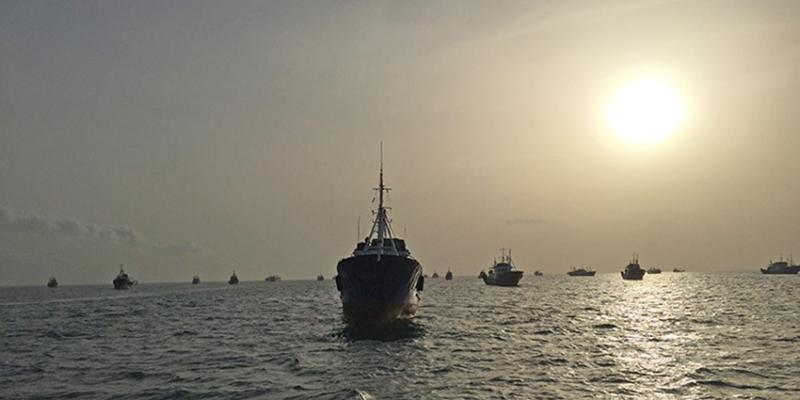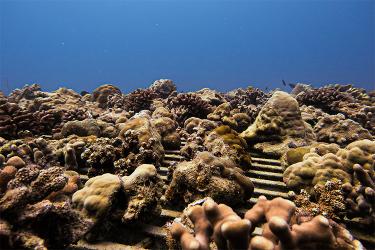In 2011 the Obangame Express, sponsored by U.S. Africa Command (AFRICOM), was created in an effort to strengthen maritime security entities around the Gulf of Guinea with signatory nations of the Youande Code of Conduct.
More than 30 maritime security agencies from just as many countries participate in this annual event. This year, for the first time, NOAA’s Office of Law Enforcement (OLE) was invited to partake in the critical and mutually-beneficial training based in Ghana.
“With the efforts to combat illegal, unreported, and unregulated (IUU) fishing becoming a central topic of global interest, it’s critical to enhance international collaboration. This was an excellent opportunity for OLE to participate in such a unique operational exercise,” said Todd Dubois, OLE’s assistant director for investigative and international operations. “Our global fisheries not only provide economic benefits but also are critical to survivability in many parts of the world. This exercise demonstrated that, with many countries depending on seafood, IUU fishing has become a national security concern.”
Obangame is designed to improve regional cooperation, maritime domain awareness, information-sharing practices, and tactical interdiction expertise to enhance the collective capabilities of Gulf of Guinea and West African nations to counter sea-based illicit activity. Realistic scenarios are designed to mirror past piracy, IUU fishing, and other related at-sea incidents. Maritime Operations Centers (MOCs) during the exercise are challenged to recognize these illicit acts appropriately and share with other marine related agencies.
“These collaborative events to share experiences and best practices for fisheries enforcement are a great way to build rapport with our foreign counterparts, while working toward a greater goal of preventing, deterring, and eliminating IUU fishing along with other at-sea crimes across the globe,” said Dubois.

OLE sent Special Agents Doug Marsden and Ross Lane, who were accompanied by Foreign Affairs Specialist Kent Laborde from NOAA Fisheries’ International Affairs and Seafood Inspection. The agents provided two days of instruction on best practices in fisheries evidence collection and a practical exercise on fisheries evidence collection at the Sekondi Naval Base, located in the Western Region of Ghana.
“It was a great opportunity to see how our international counterparts do things,” said Lane. “We were able to provide a good mix of classroom time and scenario training.”
Marsden explained that OLE was afforded the opportunity to spend more time than originally scheduled with trainees, which meant that OLE was able to expand the training platform and walk through additional real-life inspection and investigation scenarios.
The OLE training program included modules on boarding tactics, evidence collection and preservation, interviewing tactics and techniques, note taking, report writing and case presentation, vessel monitoring system, as well as IUU and foreign vessel boarding general inspection report. These classroom sessions accompanied practical exercises leading up to an offshore mock boarding of a Chinese trawling vessel.
“The U.S. Navy contracted a vessel for the at-sea exercise,” said Marsden. “It was a great hands-on experience for trainees to practice everything they had learned.”
During the time they were not engaged in training, the NOAA Fisheries personnel met with Ghana Marine Police Enforcement Unit, Fisheries Enforcement Unit, and the Ministries of Fisheries for Ghana. During these meetings, the agencies identified areas of need for future collaboration that NOAA Fisheries could assist in furthering IUU fishing detection and enhancing enforcement operations in Ghana.
“We also met with operations officers at the Maritime Operations Center in Sekondi and Tema,” said Marsden. “We got to see how these two areas use electronic monitoring to detect IUU fishing within and outside their EEZ and what they look for.”
Trainees and coordinators expressed interest in OLE’s attendance at Obangame 2018. Lane and Marsden explained that in next year’s event, they hope to integrate a training module on observers.
-
Story by Ally Rogers, communications officer for NOAA’s Office of Law Enforcement. To contact her, please call 301-427-8255 or email allyson.rogers@noaa.gov.



